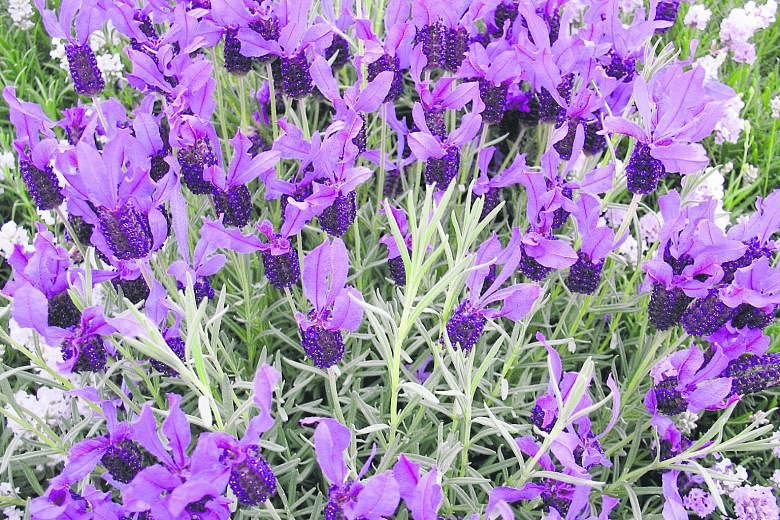Take a deep breath. Release.
People like lavender. We have been using this violet-capped herb since at least mediaeval times. It smells nice. But Google "lavender" and results hint at perhaps the real fuel for our obsession: "tranquillity", "calm", "relaxation", "soothing" and "serenity". Lavender is said to reduce stress and anxiety, but are these effects more than just folk medicine?
Yes, said Dr Hideki Kashiwadani, a physiologist and neuroscientist at Kagoshima University in Japan - at least in mice. "Many people take the effects of 'odour' with a grain of salt," he said in an e-mail.
"But among the stories, some are true based on science."
In a study published in the journal Frontiers In Behavioural Neuroscience, he and his colleagues found that sniffing linalool, an alcohol component of lavender odour, was kind of like popping a Valium. It worked on the same parts of a mouse's brain, but without all the dizzying side effects. And it did not target parts of the brain directly from the bloodstream, as was thought. Relief from anxiety could be triggered just by inhaling through a healthy nose.
Their findings add to a growing body of research showing anxiety-reducing qualities of lavender odours and suggest a new mechanism for how they work in the body. Dr Kashiwadani believes this insight is a key step in developing lavender-derived compounds like linalool for clinical use in humans.
He and his colleagues became interested in learning how linalool might work for anti-anxiety while testing its effects on pain relief in mice. In this earlier study, they noticed that the presence of linalool seemed to calm mice.
In this study, they exposed mice to linalool vapour, wafting from filter paper inside a specially made chamber to see if the odour triggered relaxation.
Mice on linalool were more open to exploring, indicating they were less anxious than normal mice. And they did not behave like they were drunk, as mice on benzodiazepines, a drug used to treat anxiety, or injected with linalool did.
But the linalool did not work when they blocked the mice's ability to smell, or when they gave the mice a drug that blocks certain receptors in the brain. This suggested that to work, linalool tickled odour-sensitive neurons in the nose that send signals to just the right spots in the brain - the same ones triggered by Valium.
Dr Kashiwadani suspects that linalool may also work on the brains of humans and other mammals, which have similar emotional circuitry. This matters, because a lot of the drugs used to treat anxiety disorders come with side effects, sometimes less tolerable than the anxiety itself. Who would not prefer to simply take a whiff of lavender and feel at peace with no impairment?
Of course, we are far from this, Dr Kashiwadani said. It is unclear how linalool would work in humans. For example, what is the dose? And how would you take it?
Until then, do not go crazy with the lavender.
NYTIMES

